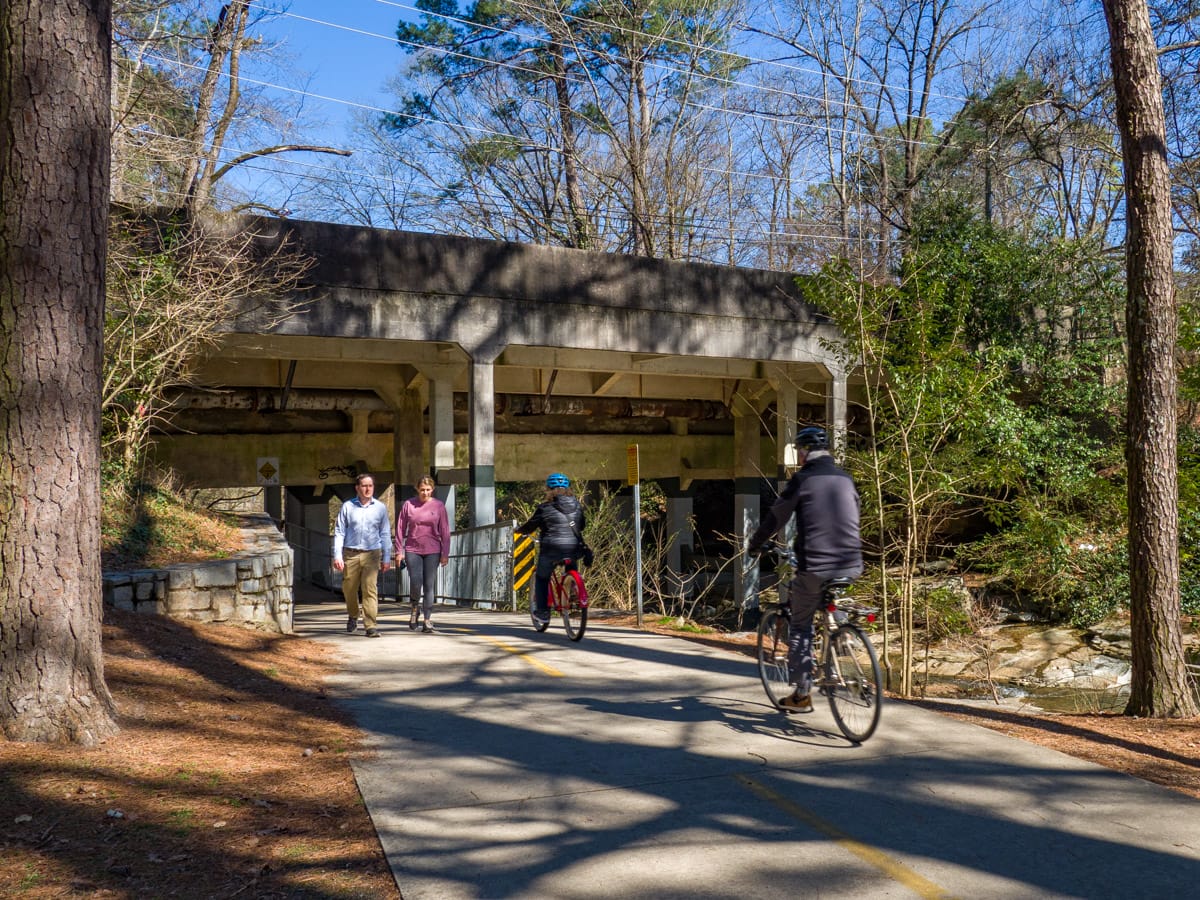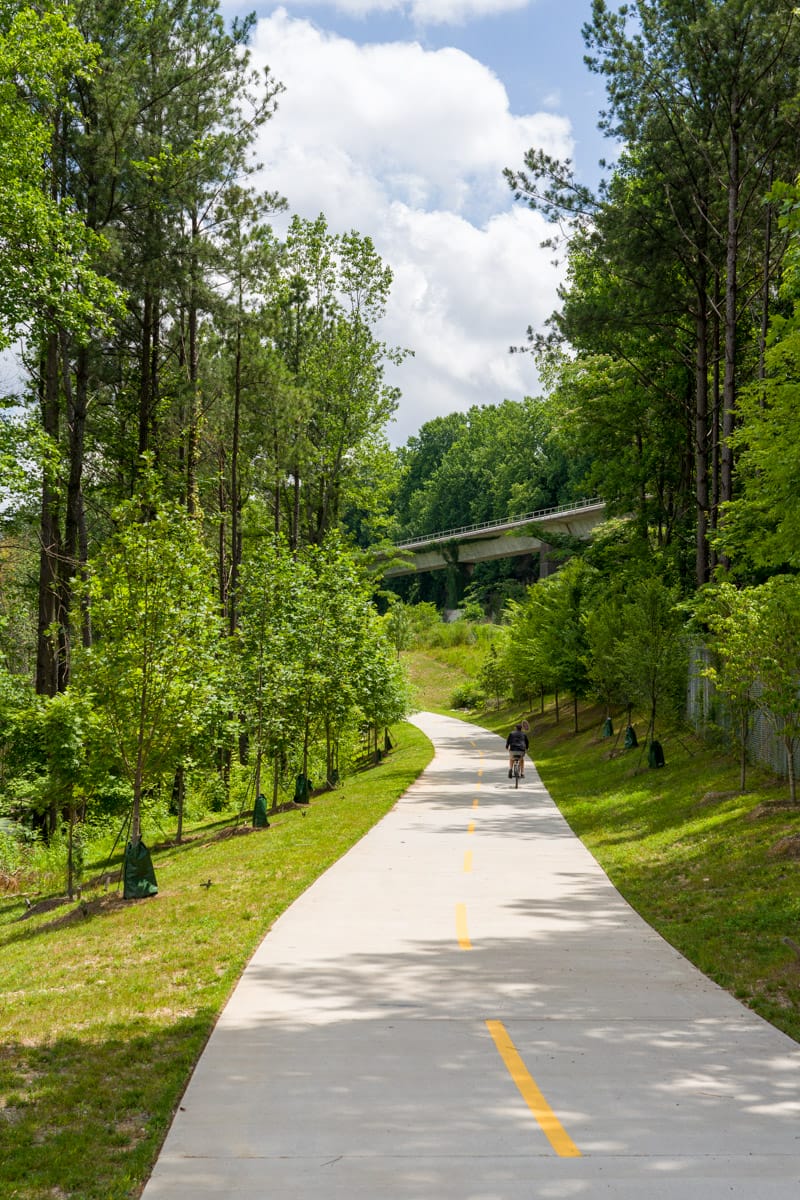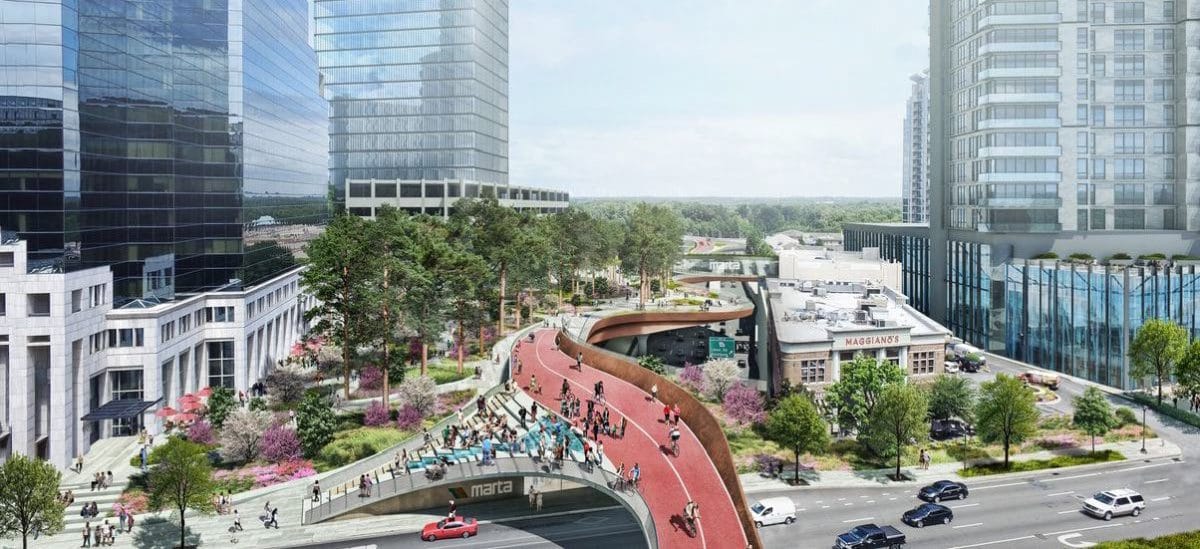Morning light filters through the oak trees of Chastain Park as Dr. Alicia Monroe, a public health researcher at Emory, monitors a group of older adults practicing tai chi. “Their blood pressure readings improve an average of 8% after these sessions,” she notes. “This isn’t just recreation; it’s preventative healthcare.”
Buckhead’s park system has become a powerful engine driving community health, economic growth, and environmental education. As developers continue to reshape Atlanta’s most important district, these green spaces provide measurable benefits that extend far beyond their boundaries.
Nature’s Healthcare System
Recent studies reveal Buckhead’s parks function as vital public health infrastructure:
Cardiovascular Benefits: Regular park users show 19% lower hypertension rates (Emory School of Medicine, 2023)
Mental Health: Just 40 minutes in green space reduces cortisol levels equivalent to a 5mg dose of hydrocortisone (CDC, 2024)
Community Wellness: Free yoga and fitness classes in parks have reached over 3,200 residents since 2022
Dr. Monroe emphasizes, “Our air quality monitors show pollutant levels 27% lower within 300 feet of major parks. These aren’t amenities they’re life-saving interventions.”
The Green Economy
Buckhead’s parks generate surprising financial returns:
Property Values
Homes near PATH400 appreciated 22% faster than comparable properties (Zillow, 2023)
Office vacancies near parks are 35% lower (CBRE Market Report) Classrooms Without Walls
Business Growth
Retailers along park corridors report 18% higher sales
73% of Buckhead employers cite parks as recruitment tools
Cost Savings
Tanyard Creek’s wetlands prevent $800,000 in annual flood damage
Tree canopy saves $2.4 million in stormwater management costs
“Parks aren’t line items in a budget they’re profit centers,” says urban economist Marcus Johnson. “Every dollar invested in Path400 has generated $4.20 in economic returns.”
Buckhead’s parks have become dynamic learning environments
Atlanta History Center Gardens
5,000 students annually participate in living history programs in the Goizueta Gardens
Beekeeping workshops produce 300lbs of park honey yearly
PATH400 STEM Labs
Georgia Tech students monitor air quality sensors
Local schools use the trail for physics experiments
Tanyard Creek Ecology Program
Volunteers have identified 47 new pollinator species
Water quality testing informs citywide conservation efforts
“These parks are creating the next generation of environmental stewards,” says educator Jamal Carter. “Students aren’t just learning science they’re doing it.”
Climate Resilience in Action
I spoke with climate urbanist Dr. Priya Kapoor about Buckhead’s pioneering approaches:
Q: How do parks combat urban heat?
PATH400’s tree canopy cools adjacent streets by 11°F. We’re now designing ‘shade corridors’ along Peachtree Road using these principles.
Q: What about flooding?
Tanyard Creek’s restoration reduced nearby flood claims by 42%. Our new ‘sponge park’ designs can hold 500,000 gallons during storms.
Q: Biggest misconception?
That parks are just for leisure. In truth, they’re critical infrastructure—the lungs, kidneys, and immune system of our city.
The Path Forward
As Buckhead prepares to break ground on HUB404, the 9-acre park bridge over GA-400, the district stands at a crossroads. Will it continue investing in green infrastructure as essential civic architecture?
The evidence suggests it must. Office workers taking walking meetings along PATH400, students testing water quality in Tanyard Creek, and seniors improving their health in Chastain Park all tell the same story: Buckhead’s future isn’t just growing taller it’s growing smarter, healthier, and more sustainable.
Dr. Kapoor leaves us with a provocative thought: “When historians look back, they won’t measure Buckhead’s success by its square footage of office space, but by its acres of accessible green space. On that metric, this community is just beginning to shine.”
As twilight falls over Chastain Park, the day’s final yoga class ends. Mats are rolled up, but the benefits linger in lowered blood pressures, strengthened community bonds, and a renewed commitment to the green spaces that make Buckhead not just prosperous, but truly livable.









